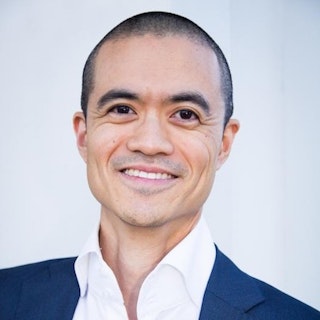Transforming your agency relationships into true strategic partnerships
To conclude my three-part series on how clients can improve their agency relationships, we’ll turn our attention to the most important aspect of fostering a strong agency partnership – managing the actual day-to-day work.

/ Photo by Cytonn Photography on Unsplash
Once you’ve provided an inspiring brief, run a respectful pitch process, selected your desired agency, and enjoyed some celebratory drinks with them, your team is now ready to create your campaign. The work commences. The agency is off to the races to live up to the ideas they pitched, the team you brought in to reinvigorate your brand.
The problem is, sometimes what starts off as a promising partnership can quickly devolve to a dysfunctional relationship that detracts from the effectiveness of the work. In essence, the honeymoon is over.
Clients can slip into three traps after the pitch process is over and the agency is officially brought on board. First, clients may feel entitled to completely offload all aspects of the work onto the agency, letting the project carry on without providing 100 per cent clarity on objectives, timelines, and desired deliverables. Second, they may forget the pitch is actually over, approaching each project meeting to become another 'audition', where the newly hired agency is constantly being tested and having to prove itself. Third, clients have a nasty habit of changing briefs or raising the bar for what success looks like in the middle of projects.
We’ve all seen this happen. A few weeks in, after teams have already invested time and energy against the brief, the goalposts move in the middle of the game. Changing a brief wastes time and money, damages trust and relationships, and creates utter frustration. The good news is that you can follow three principles to drive a more positive, effective partnership with your agency.
Be involved
Too often as clients, we approach creative agency projects as we would if we were cooking an instant, ready-made meal. You simply pour all the ingredients together, toss them into an oven, and voila! Out pops an incredibly tasty dish, perfectly cooked. Unfortunately, excellence rarely results from this sort of hands-off approach.
I’m not saying you need to micromanage every single step. However, you need to be there to taste the dish along the way, to provide feedback when the agency needs more guidance or clarity on your expectations. Be available for interim check-in meetings between creative reviews. Err on the side of being involved, especially when building a new agency partnership, when trust is being established between teams.
Change your mind-set to the agency working 'with us' not 'for us'
When you hire an agency, to get the best work out of them, you need to treat them like they’re part of your team. You should still keep mental notes on how well they’re performing and remain critical about their effectiveness, but no one appreciates a Spanish Inquisition at every meeting. As client, do what you can to help the agency be successful with your internal decision-makers. Provide them with organisational insights so they can more effectively selling in ideas. In meetings, sit on the same side of the table as the agency for a change. Whenever I’ve done this, the tenor radically shifts toward being more collaborative and positive. And whatever you do, don’t throw your agency under the bus. Support them. You hired them, you guided them, and you’re ultimately accountable for getting to a good result with this team.
Stick with the brief
Sometimes, changing direction is unavoidable. It happens. Internal politics, strategic changes within your organisation, or new data may all be legitimate reasons for changing course after your agency has already invested time and energy working on the original brief. However, firing then aiming rarely works out for the best It guarantees you’ll waste time, money, effort, and most of all, team motivation.
The best way to create great work is to develop a clear strategy from the start and avoid deviating. Spend a bit more upfront time to get all your decision-makers into a room to align on exactly what you want, then commence work. Be clear on the deliverables expected. Keep a copy of the brief and scope of deliverables on hand in every creative review meeting as the one objective touchstone against which the work should be judged.
I’m not naïve to think that stakeholders never change their mind or deviate from the brief, but your job is to call this out when it happens to ensure you can have an explicit conversation about the implications to timing & budget.
In conclusion
I believe we will only create truly high performing client-agency teams by radically changing the conventions of the way we collaborate at this important intersection where brands transform into tangible consumer communications that drive meaning and engagement. As a client, you can be clear during the brief without being prescriptive. You can be a partner to the agency during the pitch without losing your ability to critically evaluate the ideas. You can be involved during the project without micromanaging the creative work. And you can advocate for your agency during creative review meetings whilst still maintaining your role as client.
At the end of the day, both the agency and client must work together, not a client team and an agency team, but rather, an integrated campaign team, jointly owning the project, jointly presenting ideas to internal stakeholders, and jointly being held accountable for the impact of the work on consumers and the business.
-------------------
With over eight years of client-side brand management & marketing experience at Fortune 500 FMCG and start-up companies in the US & UK, managing brands that include Glad, Liquid-Plumr, Gü Puds, and Häagen-Dazs, Joseph Liu helps professionals & small business owners relaunch their careers with resources to help them navigate career change and more powerfully market their personal brands at josephpliu.com. He's also the host of the Career Relaunch podcast, featuring inspiring stories of career change.

